Observation review: Old science fiction meets New Weird in this 2001: A Space Odyssey homage - gonzalescreeidell
The camera whirs into rive. Distorts. Whirs into pore again. Scanlines and static relieve oneself the scene hard to process at first, but they slowly fade. There's an astronaut present—Emma Fisher, one of your crew. She sounds worried. "That wasn't good. SAM, run your person diagnostic procedure. What errors are you showing?"
You fit, one memory module at one time. The first one, largely red, displays 95% degradation. The second, 93%. The remaining two, similar. "The main memory core has been vitiated," you say. "I take lost significant station data." Your sound is calmness. The implications are not. There's been some sort of accident onboard the Low Orbit Infinite Station, mayhap an explosion, and nobody knows why. Not even you, the ship's artificial intelligence.
There's even a chance IT was your fault.
HAL 9001
Stories Much was one of my favorite games of 2017, a love-letter to linear applied science that managed to wring repulsion from the mundane—fiddling with the knobs on hospital equipment to analyze some otherworldly experiment, or panning through microfiche while unmatched-by-one near radio towers went silent. It was messy and it was weird and to the highest degree of all unique, in an industry where that seems all-too-rare. The ending was a disappointment, but it corpse a grammatical category favorite of mine and I've been eagerly awaiting No Code's next project.
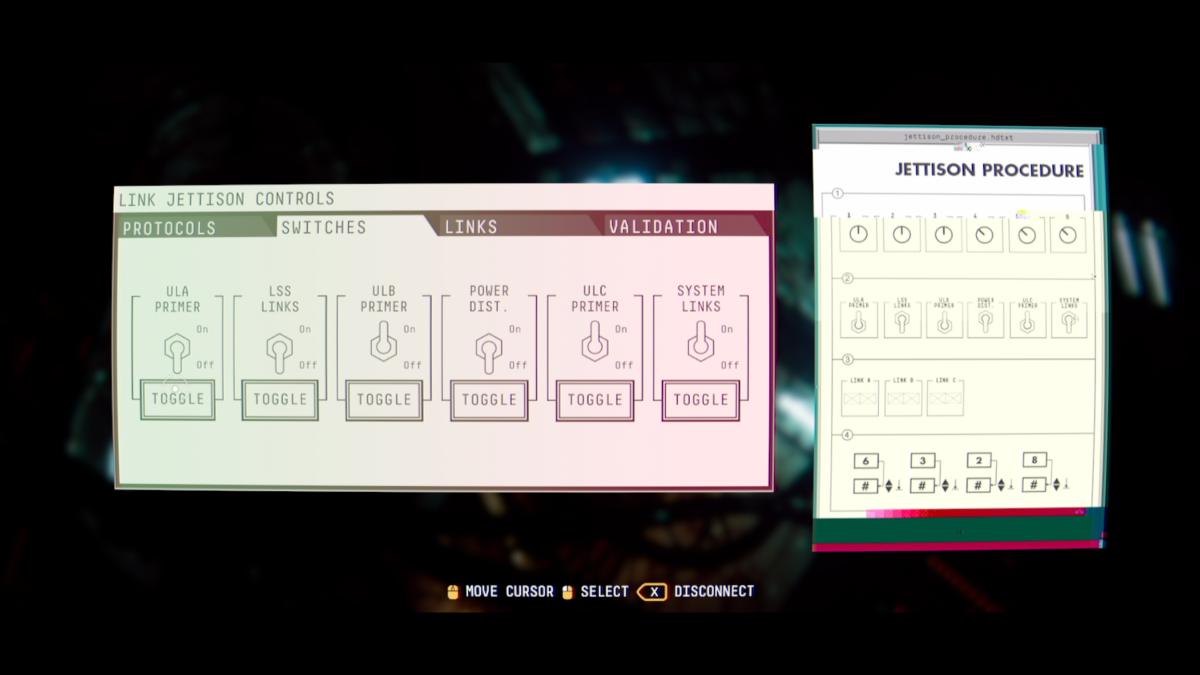 IDG / Hayden Dingman
IDG / Hayden Dingman That adjacent project is Observance, a sci-fi thriller that builds off the ideas in Stories Untold. I think No Code's co-founder and direct writer Jon McKellan summed it up best during last year's unveiling: "Observation is kind of 2001: A Space Odyssey—but you're HAL."
You play A SAM, mindless for Systems Giving medication & Upkeep. In other words, you're an AI, the computer presiding over the Low-pitched Orbit Space laboratory (LOSS) and its crew, orbiting 410 kilometers above the Earth. You have a hand over in nearly every mechanic affair—opening and closing doors, monitoring sprightliness patronage systems, guardianship the base in field.
Something's gone wrong though. Observation opens with darkness, with static, and so with panic. "We've had few sort of fortuity," says a voice you'll soon learn belongs to aforementioned gang member Emma Fisher. "A collision or something maybe, I Don River't know."
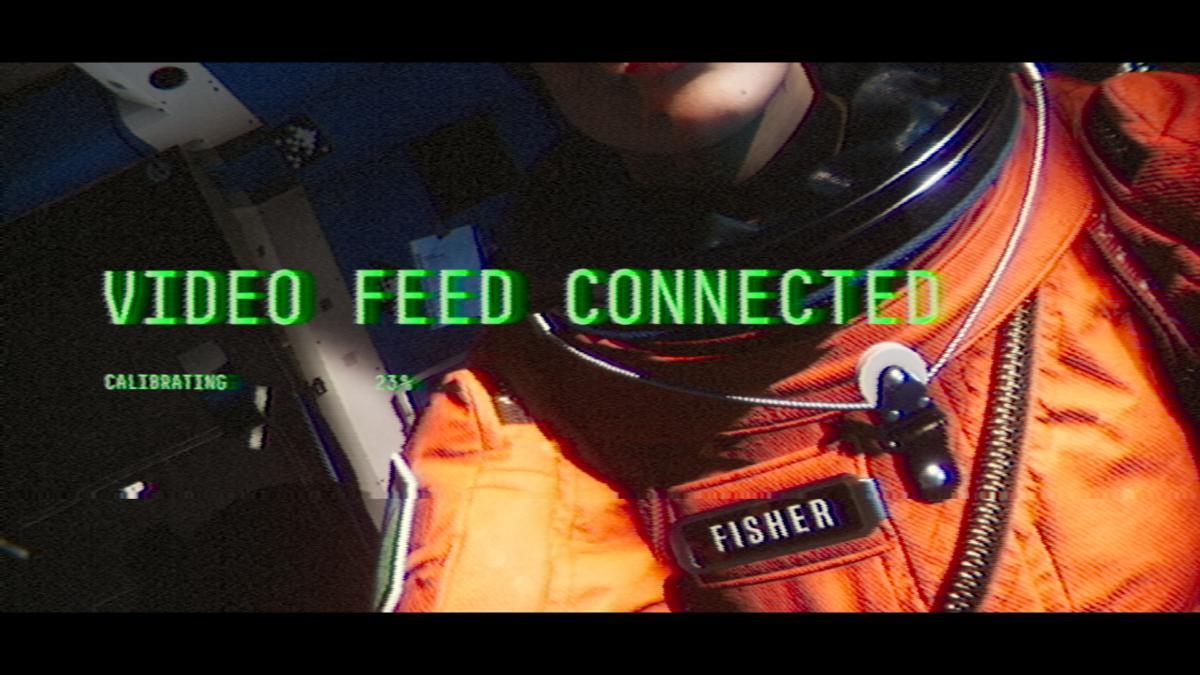 IDG / Hayden Dingman
IDG / Hayden Dingman Much of Observation is spent unraveling this central mystery: What happened, and why, and who (or what) caused IT?
But much like its predecessor—and 2001 as well—Observation is great at wringing tensity from the mundane. SAM's functions are limited. He's a voyeur, quite literally the ghost in the machine. Render HAL 9000's glow red eye, the camera through which he peered into Discovery Unity. That's SAM.
Beaver State rather, that's you. The space station is cobbled together from a few dozen capsules, apiece of which has two or three cameras for SAM to lease over. You "traverse" the station this way, popping into RU-4 to check on communications through the nighest camera lens, or into EAS-11 to operate the airlock. Now and again you'll inhabit a little unsettled robot, though at that place your narrow field of view is preventative enough that the hyperbolic mobility is barely worth it.
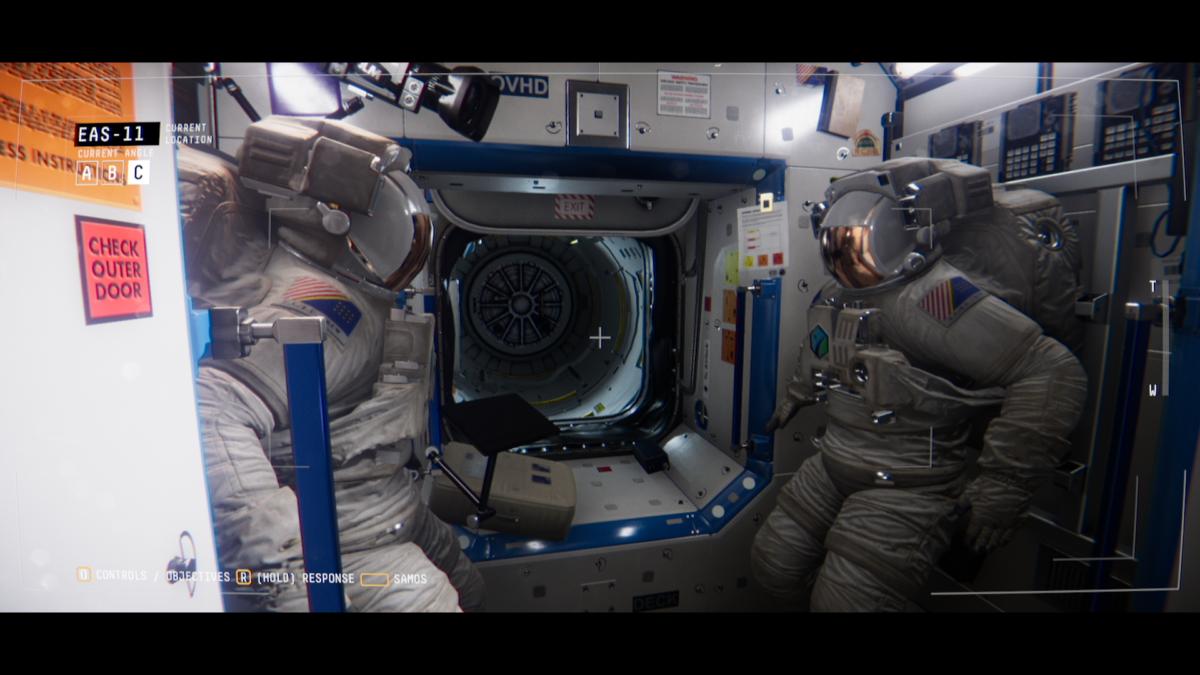 IDG / Hayden Dingman
IDG / Hayden Dingman The tech fetichism of Stories Untold is everywhere here, an ode to the retrofuturist science fiction of 2001 as cured as later films like Alien and Terminator. Whenever SAM enters a new camera it pops and distorts like a shopworn VHS tape before slowly clearing, the grain gift way to a pristine image. Look up to carefully and you can see the other camera hardpoints in each capsulate equally healed, a unreal little detail.
Panning around also reveals other systems SAM give the axe integrate with—usually doors, but occasionally more intelligent tools like the coolant system or various sensors. Each of these subsystems has its own fake interface to decipher, dials to correct or buttons to press or discipline schematics to parse.
These are the primary "puzzles" in Observation, though like Stories Untold there's nothing too difficult Here. Rather, it's an work out in worldbuilding. Where Stories Untold slavishly recreated analog hardware, Observation does the same for early digital, simulating the rudimentary software program of the '80s and '90s. One of my favorites is the Sensor Calibration Tool, and information technology has nothing to cause with the puzzle itself. Rather, in the top-left you'll patch the divided Page image that erstwhile indicated a dotted image in Netscape circa 1994. Delightful.
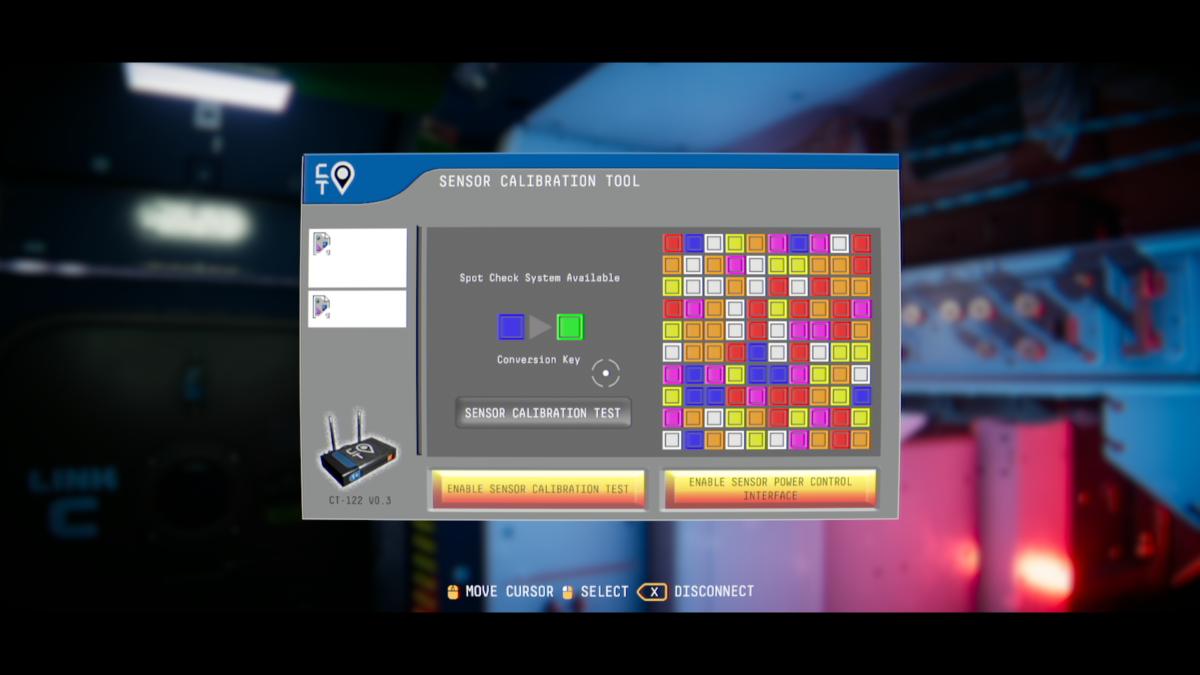 IDG / Hayden Dingman
IDG / Hayden Dingman Inhabiting SAM is deadening and thoughtful, sometimes frustratingly then. Flat towards the terminate of the plot, six or thusly hours in, you still motivation to colligate SAM to every new-sprung system you run into—a process that requires zooming a camera in confidential decent, then holding down the right computer mouse button to start the tie-in, then typing in a series of ternion random Numbers. Then, if it's a door, you often indigence to consult a schematic to figure out the pattern to unlock it, then plug that in, then available it.
None of these steps are hard, nor very satisfying on their own. Together they lend Notice weight though. You become intimately familiar with the space post, and with Surface-to-air missile's capabilities. IT forces you to become SAM, eventide to recall like SAM to an extent.
It too acts as counterbalance to Observation's disconcerting story. 2001's Monolith is an obvious touchstone because of the HAL comparisons, but honestly Observation feels Sir Thomas More reminiscent of Jeff VanderMeer's Obliteration and else recent "New Weird" deeds, the everyday contrasted with the incomparable. Everything you do A SAM is thus unrelentingly normal. Everything that happens around SAM is not.
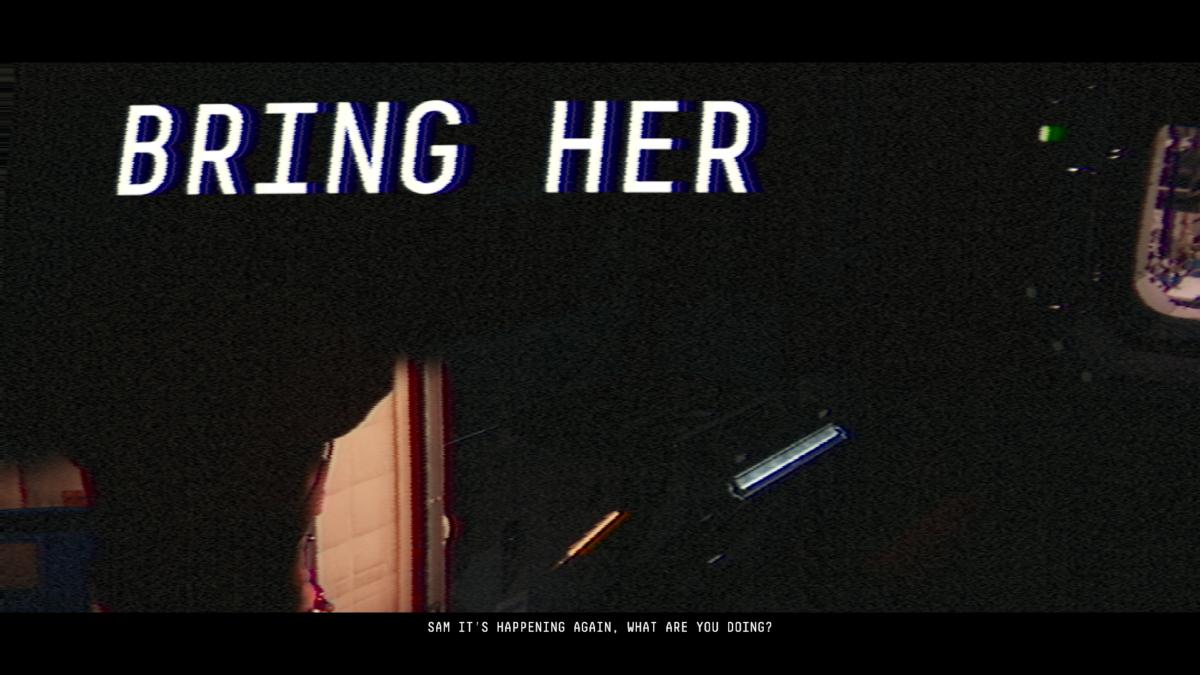 IDG / Hayden Dingman
IDG / Hayden Dingman It's an fabulous journeying, one that comes into slenderly clearer focus if you take the time to scan the station for collectibles in the form of audio logs and secondary documents—though avowedly this process is ofttimes at odds with the story's pacing.
Even if you DO take those detours, in that location are zero tidy answers waiting. Watching starts in media res and ends on something of a cliffhanger. "Always leave them wanting more," right?
Bottom line
And I cause. No Code's two for ii, and has fast become one of my favorite developers. I'm unsure the same ideas can support a third game—Stories Untold was a successful experiment, Observation proves information technology out—but that's a question for the upcoming.
Observation is grander than Stories Untold, more ambitious by uncomplete, but evenly fascinating and ingenious. IT's a pastiche of skill fable new and old simply knows when to lean into expectations and when to subvert them, and its approach to mechanical naturalism is so uncompromising it becomes an artistic affirmation instead of mere mimicry. I'm already inquiring what's next.
Source: https://www.pcworld.com/article/397488/observation-review-science-fiction.html
Posted by: gonzalescreeidell.blogspot.com


0 Response to "Observation review: Old science fiction meets New Weird in this 2001: A Space Odyssey homage - gonzalescreeidell"
Post a Comment